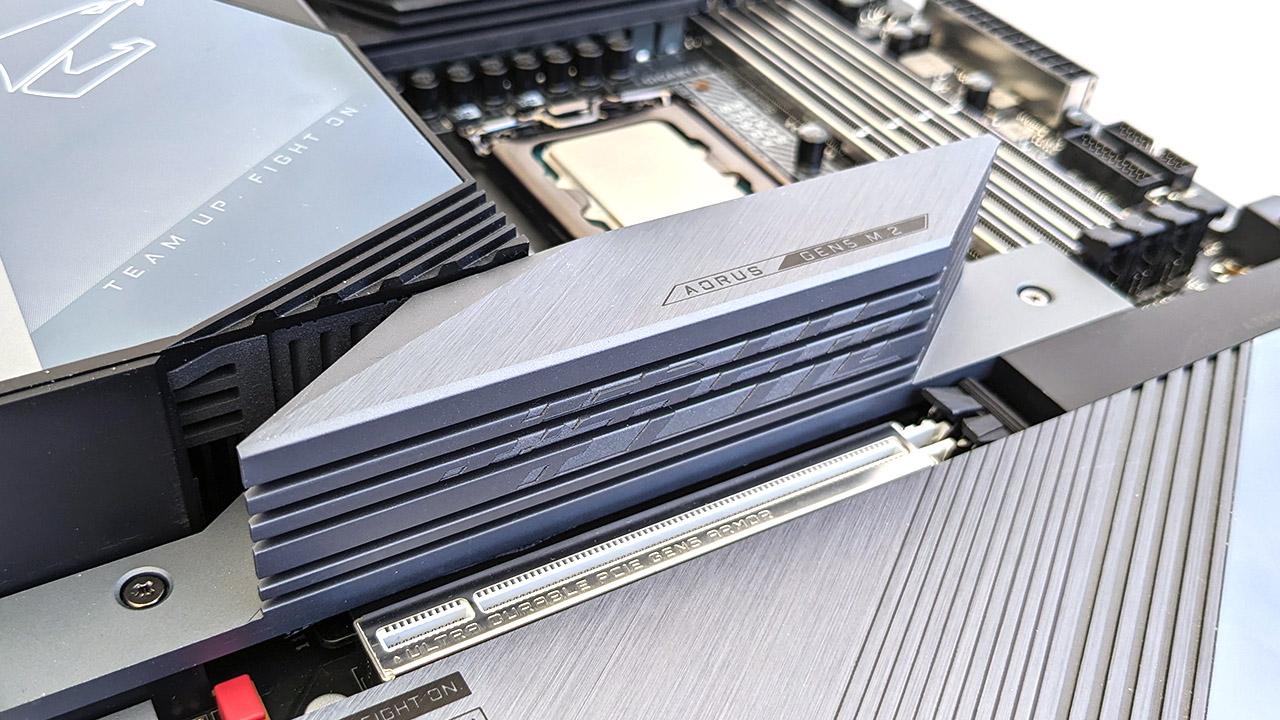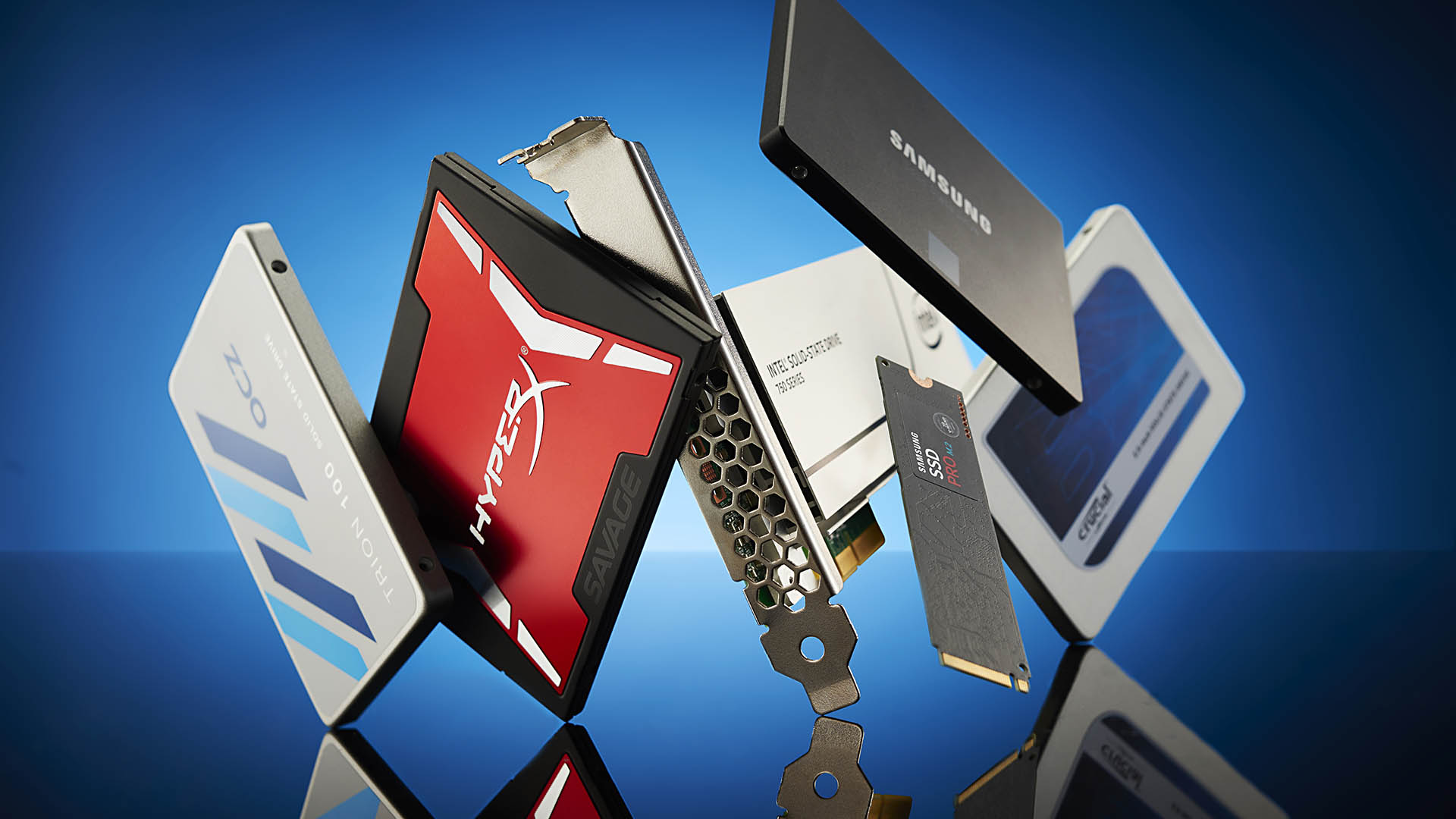Intel's efforts to develop a PCIe throttling driver point towards a very hot Gen 6 future
Gen 5 drives are already hot enough.

My biggest gripe with current PCs is excessive power consumption. Second to that is the heat generated by NVMe SSDs. A motherboard with an acre of metal covering half the board, or SSDs cooled by tower heatsinks with tiny fans is just not what I want to see. It's not like Gen 5 x4 SSDs deliver tangible performance improvements anyway.
That's why the news (via Tom's Hardware) of Intel's efforts to create a bandwidth controller driver to address these issues is concerning. This driver has been developed for Linux users with the aim of controlling thermal issues inherent to high bandwidth PCIe devices by reducing PCIe link speed when necessary.
Phoronix reports the driver should incorporate a mechanism to reduce the link width of PCIe Gen 6 devices. So, a Gen 6 x4 drive could reduce to x2 or x1 when the system detects excessively high temperatures. The changelog indicates changes to link width in this way is not possible with Gen 5 devices.
The driver itself is actually a good idea. I like the idea of dynamic throttling under the right circumstances, but that we need it at all is what's concerning. A fast Gen 5 drive that can hit 14 GB/s can easily throttle if not cooled appropriately. I shudder to think what kind of cooling a top spec Gen 6 drive will require. Maybe we'll see more AIO's with integrated M.2 cooling blocks.

Best SSD for gaming: The best speedy storage today.
Best NVMe SSD: Compact M.2 drives.
Best external hard drives: Huge capacities for less.
Best external SSDs: Plug-in storage upgrades.
For now, the driver is for Linux only, leaving questions about how or if such a driver could make it to the Windows ecosystem. It shouldn't be too hard to develop. If Gen 6 devices really are nuclear, the SSD industry, Intel, AMD, Microsoft and laptop manufacturers should be able to put their heads together and make something like this work.
I'd like to see a move away from typical x4 drives to more x2 or x1 drives. A Gen 6 x1 drive will still be able to transfer at up to 7GB/s, the same as a Gen 4 x4 drive now. Most of us will never need a Gen 6 x4 drive that can transfer 28 GB/s sequentially, and if you do, you will need two Gen 6 x4 slots anyway, which most consumer motherboards will certainly lack.
Random performance and I/O are what makes a good SSD, but that fact seems to have been lost by manufacturers only interested in promoting big numbers that are easy to understand.
The biggest gaming news, reviews and hardware deals
Keep up to date with the most important stories and the best deals, as picked by the PC Gamer team.
My gripes aside, It is good to see dynamic throttling come not just to SSDs, but hopefully all PCIe devices. As long as it works without any issue of course! A few watts saved here or there will all add up. Lower temperatures will always be welcome. And with that, hopefully annoying little fans can be banished too.

Chris' gaming experiences go back to the mid-nineties when he conned his parents into buying an 'educational PC' that was conveniently overpowered to play Doom and Tie Fighter. He developed a love of extreme overclocking that destroyed his savings despite the cheaper hardware on offer via his job at a PC store. To afford more LN2 he began moonlighting as a reviewer for VR-Zone before jumping the fence to work for MSI Australia. Since then, he's gone back to journalism, enthusiastically reviewing the latest and greatest components for PC & Tech Authority, PC Powerplay and currently Australian Personal Computer magazine and PC Gamer. Chris still puts far too many hours into Borderlands 3, always striving to become a more efficient killer.

